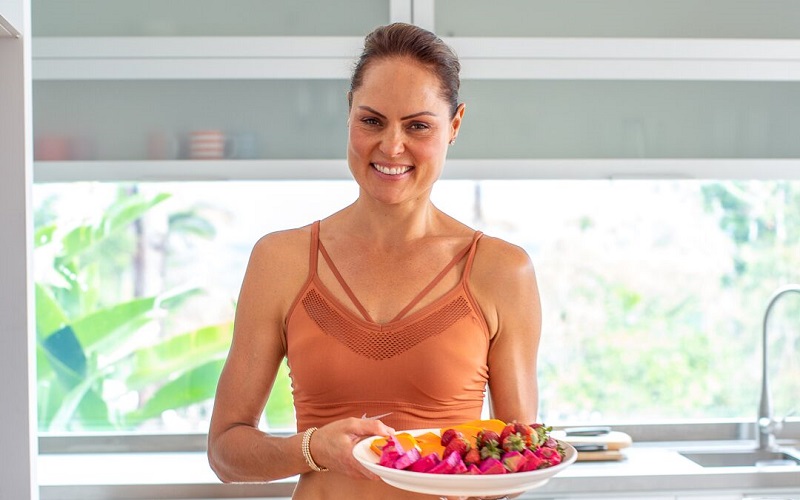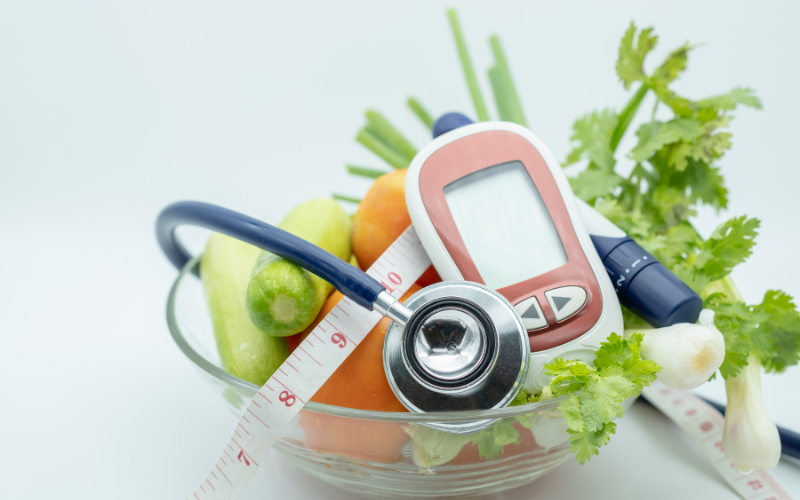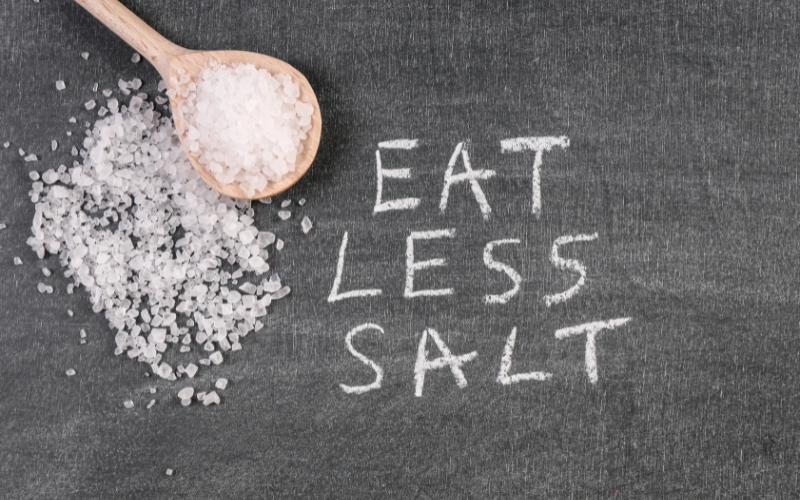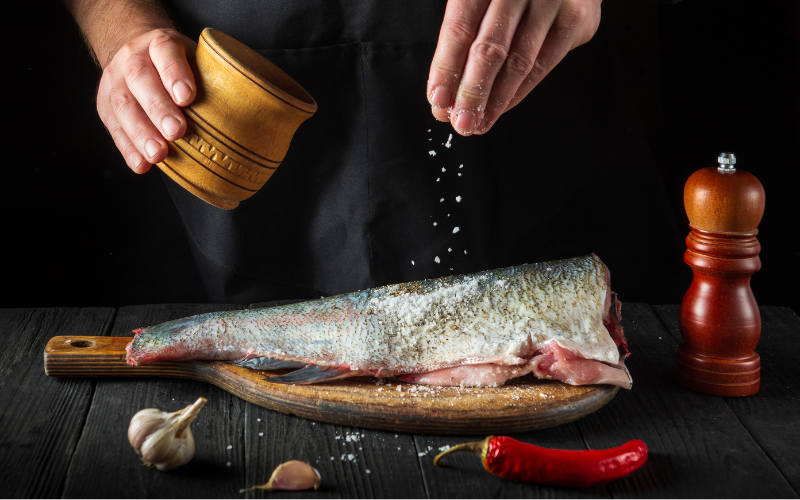Zoe Bingley-Pullin: Playing with fire - Inflammation in the body

Inflammation is the body’s response to outside threats such as infection and toxins. A short-term bout of inflammation to combat a hazard is both positive and protective for our health. This is defined as acute inflammation.
Chronic inflammation on the other hand, is long-term, lasting from several months to years. It can result from a failure to eliminate the cause of an acute inflammation, an autoimmune disorder, long term exposure to an irritant (such as an industrial chemical), or recurrent episodes of acute inflammation.
While short-term acute inflammation is a natural and healthy reaction from the immune system, ongoing elevated levels of inflammation are not healthy. This persistent inflammation can eventually do damage to healthy tissues, cells and organs.
Let’s learn a little more about how to spot any worrying signs of inflammation, the reasons why chronic inflammation is so bad for us, and what anti-inflammatory foods we eat to help.
Review the Dietlicious Anti-Inflammatory Diet Plan
Signs & symptoms of inflammation in the body
You will have noticed your body's inflammatory response if you've ever had an infected cut. You would have experienced some pain, swelling, redness, heat and difficulty moving the affected body part. These are the five signs of acute inflammation of the skin. They indicate that your immune system is sending cells and nutrients to the affected area. In an acute case like this, inflammation is temporary and a wholly healthy and necessary function for healing.
Chronic inflammation presents in a different way with symptoms such as fatigue, body pain, mouth sores, fever, rash, frequent infections, gastro complications like constipation or diarrhoea, weight gain, depression or anxiety.
The problem with chronic inflammation – links to disease
What scientists now know is that chronic inflammation may be the common underlying cause of major degenerative diseases. Chronic inflammatory diseases such as stroke, chronic respiratory diseases, heart disorders, cancer, obesity and diabetes are responsible for 3 out of every 5 deaths worldwide. The World Health Organization (WHO) ranks them as the greatest threat to human health. These big diseases of our time all involve inflammation and sadly (or hopefully!), they are all preventable.
Autoimmune conditions (where the body attacks its own healthy cells) are also worth a mention as they also tend to involve an inflammatory response. I’m talking about conditions like rheumatoid arthritis, Psoriasis, Crohn’s disease, colitis, inflammatory bowel disease, lupus and Hashimoto’s disease. While there aren’t cures for these diseases yet, it is understood that reducing the inflammation can help minimise some of the symptoms and make living with the condition easier.
Risk factors & ways to fight chronic inflammation
Now you have an understanding that persistent inflammation in the body is detrimental to health, it’s important to determine what, if anything, you can do to reduce it.
The risk factors for chronic inflammation are age, obesity, diet, smoking, low sex hormones, stress and sleep disorders. Whilst you can’t change your age, thankfully you can influence the others. Research suggests that dietary and lifestyle changes that may be helpful in removing inflammation triggers and reducing chronic inflammation. It boils down to 3 key strategies:
Weight loss. Obesity is a major cause of inflammation in the body, and losing weight is the most effective way to fight it.
Increased physical activity. In human clinical trials, it has been shown that energy expenditure through exercise lowers a number of pro-inflammatory molecules, independently of weight loss.
Diet. A healthy diet is crucial for fighting inflammation. See below for foods that reduce inflammation as well as those that promote inflammation, which you should avoid.
Top 10 anti-inflammatory diet foods
One of the most powerful tools you have at your disposal to combat inflammation comes not from any pharmacy, but from your local supermarket. That’s because natural, healthy wholefoods contain many potent compounds that reduce inflammation in the body. Here are 10 top anti-inflammatory foods to include in your diet as well as some meal suggestions from Dietlicious.
- Vegetables are high in natural antioxidants and polyphenols that protect against inflammation. In particular, broccoli and other cruciferous vegetables like cauliflower, Brussels sprouts and kale, are the best sources of sulforaphane, an antioxidant with powerful inflammation-lowering effects. Good options include this Indian Vegetable Curry w Chickpeas and Broccoli and Almond Soup.
- Berries provide antioxidants known as anthocyanins, so grab your fill of strawberries, blueberries, blackberries, raspberries, cherries & cranberries. You may like GF Blueberry + Coconut Muesli or a Muesli Bar snack containing cranberries.
- Fish oil is the richest source of the omega-3 fatty acids, which is associated with lowering levels of inflammation. Get your dose by eating salmon, mackerel, tuna and sardines like Salmon Chermoula or Thai Red Curry w Salmon Sweet Potato + Greens.
- Nuts such as almonds are associated with lowering risk of inflammatory conditions like cardiovascular disease and diabetes. This Pistachio Nut Ball will hit the spot!
- Fibre is not a food as such but high intakes are associated with lowering levels of inflammatory markers. As well as veg and fruit, legumes are a great addition to your diet if you want to boost your fibre intake. Great examples of high fibre meals are Bombay Burrito and Chickpea + Kumera Masala.
- Coffee, green tea and black tea which all contain polyphenols and other anti-inflammatory compounds, may protect against inflammation as well.
- Curcumin, a constituent of turmeric causes significant patient improvements in several inflammatory diseases especially in animal models. Why not try the Chicken with Preserved Lemon + Turmeric Zucchini?
- Chilli peppers and capsicums are rich in quercetin, sinapic acid, ferulic acid, and other antioxidants with strong anti-inflammatory effects. This tasty meal incorporates both capsicum and chilli, Morroccan Chicken with Roast Sweet Potato + Sauteed Capsicum.
- Extra virgin olive oil provides powerful anti-inflammatory benefits, which may reduce your risk of heart disease, cancer, and other serious health conditions. Dietlicious salad dressings all feature extra virgin olive oil as a base.
- Dark chocolate and cocoa can reduce inflammation thanks to the flavanols they contain. Try this Raw Cacao Ball.
If you’re wanting to reduce or prevent inflammation, you will also need to avoid these pro-inflammatory foods:
- Junk foods including french fries, burgers, fried chicken, doughnuts, potato chips, processed food.
- Trans fats which encompasses partially hydrogenated vegetable oils, shortenings and some margarines.
- Refined carbohydrates such as white bread, crackers, biscuits, pastries, cakes, pasta.
- Sugary foods like soft drinks, energy drinks, lollies, chocolates.
- Processed meats including bacon, salami, hot dogs, smoked meat.
- Alcohol is ok in moderation but excess amounts are harmful for inflammation.
Whether you’re aiming to reduce your inflammation or just improve your health generally, there are a few other important points to remember. Firstly, no single food will transform your health. It is vital to include a variety of healthful ingredients in your diet. Fresh, simple wholefoods are always the best choice as processing can change the nutritional content of foods. In fact, highly processed foods are a definite no-no as they promote inflammation. Lastly, remember to serve up a colourful plate of foods to maximise the range of antioxidants and nutrients you’re getting.
If you follow these simple diet and lifestyle rules then you can keep chronic inflammation at bay which will improve or prevent symptoms. Not only that, you’ll feel healthier, happier and lighter too!
Check out the Dietlicious Anti-Inflammatory Diet Plan











